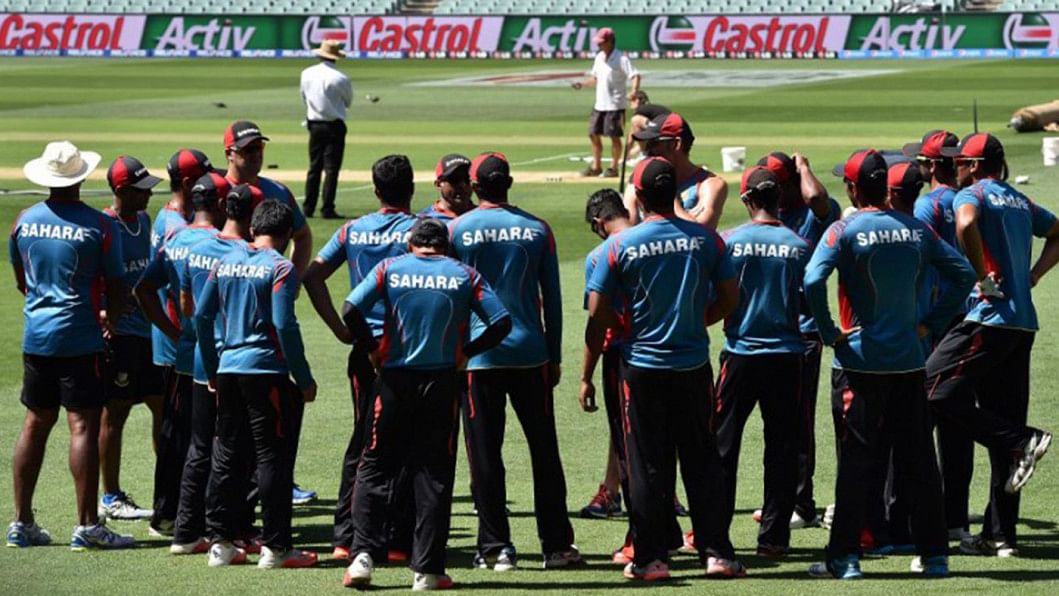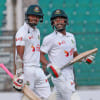Two-tier agenda still not over

The International Cricket Council (ICC) Annual Conference concluded in Edinburgh on Saturday without any significant headway towards a radical change to its governance and cricket structure, saving Bangladesh and other lower-ranked teams from being relegated to a lower tier for the time being.
But ICC's first independent chairman Shashank Manohar, who is heading a five-member team to review the controversial 2014 resolutions that empowered the 'Big Three' to call all the shots, said after the week-long meeting that they had made significant progress in presenting a 'fair and transparent' ICC in its next board meeting in October.
“The board noted with satisfaction that significant and positive progress had been made by the working group established to oversee a complete review of the 2014 resolutions and constitutional changes. The board was informed that a draft of a new constitution will be prepared in the coming weeks for consideration by the board at its October meetings,” read an ICC press release issued yesterday.
“We have undertaken the responsibility of reviewing the 2014 resolutions and constitutional changes in their entirety as we are committed to following best practice principles of good governance to build, improve and enhance the image and reputation of the ICC by putting in place systems and processes which are fair, transparent and merit-based”, read the press release quoting Manohar.
“I am pleased with the work that has been done to date during this set of meetings and we are looking forward to presenting the amended constitution to the board for its consideration at the next meeting,” added the new ICC chairman.
Meanwhile, ICC chief-executive David Richardson, who spoke for two-tier Test structure before the meeting, creating an uproar in Bangladesh and Sri Lanka, acknowledged after the meeting that it was a 'complex issue' but was 'happy' with the significant progress which was made in the direction of a 'merit and performance based cricket structure.'
“This is an unprecedented opportunity for our sport to introduce a package of bilateral international cricket structures, which are merit and performance based, have context, enhance the value of bilateral international cricket and create a highly competitive environment for cricketers so they can provide more entertainment to spectators,” Richardson was quoted in the ICC release.
“The Member countries acknowledge and recognise the importance of international cricket across all its three formats and are committed to ensuring that it continues to grow in relevance and value for cricket fans around the world.
“This is a complex issue on many levels but I am heartened by the progress that has been made to date and during these meetings and look forward to the next meeting in Dubai,” he added.
The ICC release also added that a workshop be scheduled in early September in Dubai to facilitate discussion between Members on this project, and to work through some of the details.
Meanwhile, the ICC has taken a strategic decision to support the inclusion of women's cricket in the 2022 Commonwealth Games as it will enhance the profile of the sport and create additional exposure and experiences for female cricketers, as well as opportunities to engage with the Commonwealth Games on important social justice issues and initiatives.
There will be further discussions on cricket's potential participation in the Olympic Games following further meetings with the International Olympic Committee later in the year.
Besides, the board has decided to tweak the Decision Review System (DRS). The size of the zone inside which half the ball needs to hit for a 'Not Out' decision to be reversed to 'Out' will increase, changing to a zone bordered by the outside of off and leg stumps, and the bottom of the bails (formerly the centre of off and leg stumps, and the bottom of the bails). This amendment will come into effect from October 1 or any series starting just prior to this date.

 For all latest news, follow The Daily Star's Google News channel.
For all latest news, follow The Daily Star's Google News channel. 








Comments